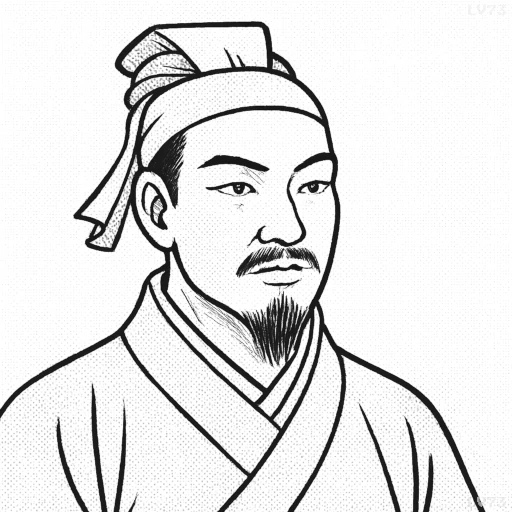“He who is prudent and lies in wait for an enemy who is not, will be victorious.”

- 544 BC-496 BC
- Born in China
- Military strategist, military strategist
table of contents
Quote
“He who is prudent and lies in wait for an enemy who is not, will be victorious.”
Explanation
In this quote, Sun Tzu emphasizes the value of patience, strategic thinking, and timing in warfare. The prudent leader is one who avoids rash actions and instead waits for the right moment to strike. By being patient and lying in wait, they allow the enemy to make mistakes or miscalculate, which creates an opportunity to strike when the opponent is least prepared or vulnerable. The enemy who is not prudent, on the other hand, may rush into action, overextend themselves, or underestimate the situation, ultimately leading to their downfall. The essence of this tactic is that victory does not always come from brute force or immediate action, but from the ability to exploit the enemy’s mistakes at the optimal time, often when they are most complacent or overconfident.
This principle can be applied not only in military strategy but also in business, sports, and negotiations. In business, companies that wait patiently for the right market conditions to launch a product or expand can often outmaneuver competitors who rush to take action without fully assessing the risks. For instance, Apple has often been patient with new product launches, carefully waiting until it has developed a fully refined product before releasing it, while competitors may rush to release imperfect versions. Similarly, in sports, a team that carefully observes and waits for weaknesses in the opponent’s strategy, like a counter-attacking football team, can exploit those flaws when the time is right. In negotiations, those who take time to understand their counterpart’s position and carefully choose the moment to reveal their demands or proposals often secure better terms than those who rush in with forceful, premature demands.
Historically, this idea can be seen in many successful campaigns. General George Washington during the American Revolution often employed this strategy, avoiding direct confrontation with the superior British forces until an opportunity presented itself. A prime example is the Battle of Trenton, where Washington waited until the British forces were vulnerable after Christmas celebrations and then launched a surprise attack. Similarly, Napoleon Bonaparte was known for his ability to wait for the perfect moment to engage, often using deception and misdirection to lull enemies into a false sense of security. Sun Tzu’s principle of waiting for the right moment has been applied successfully across centuries in various conflicts, business ventures, and personal strategies, proving that patience and careful planning are key to achieving victory without unnecessary risk.
Would you like to share your impressions or related stories about this quote in the comments section?
